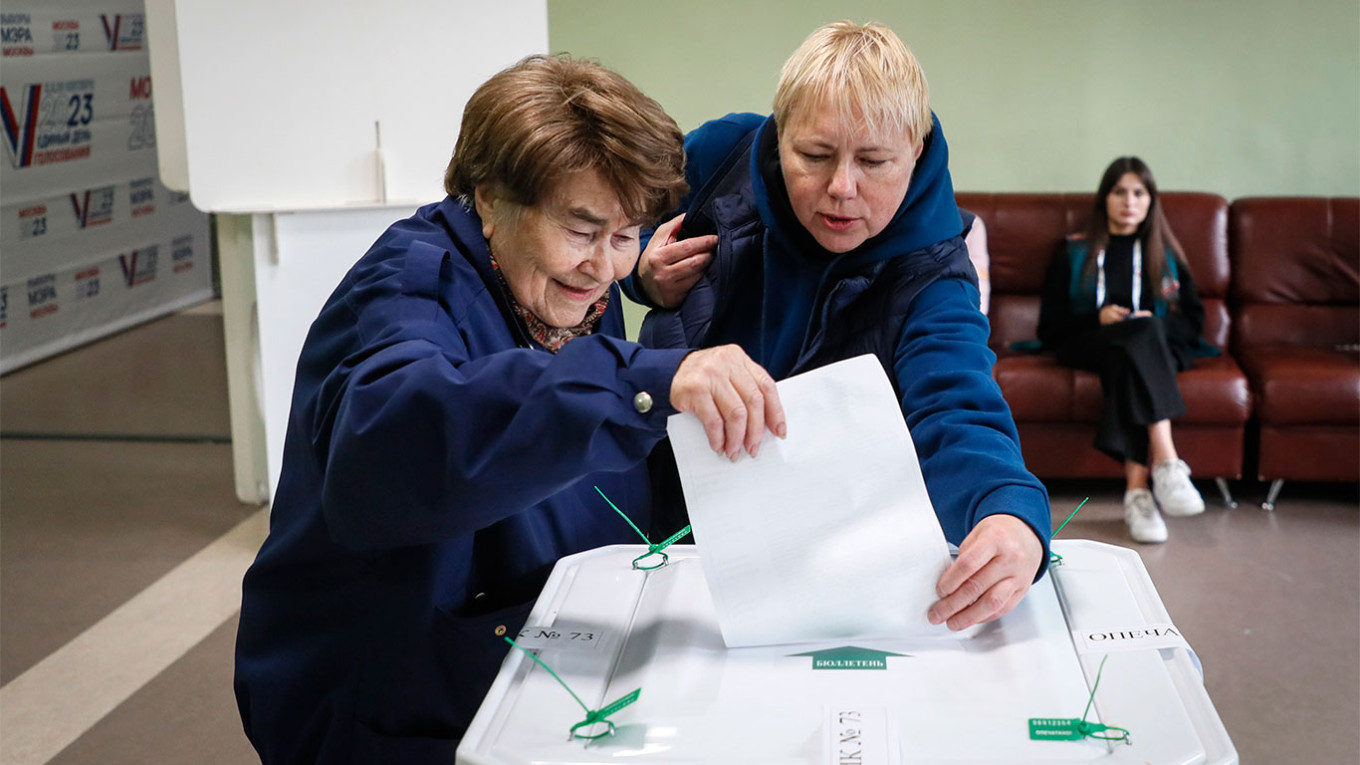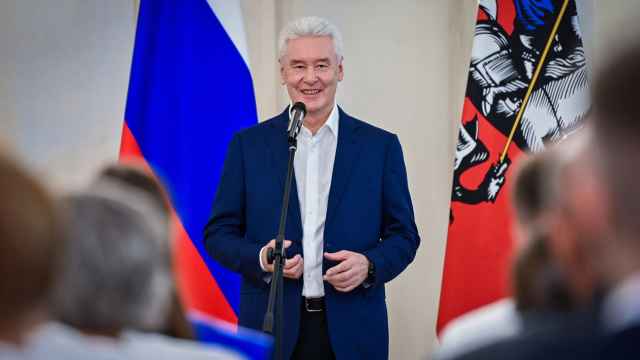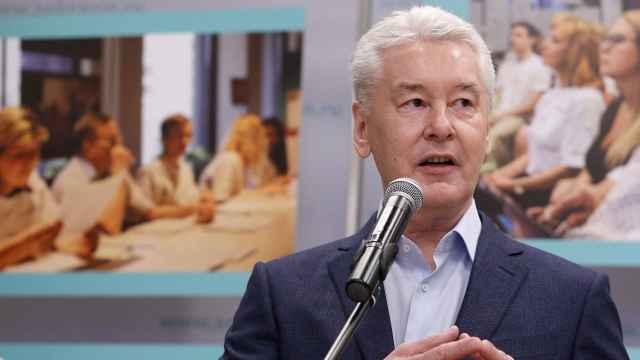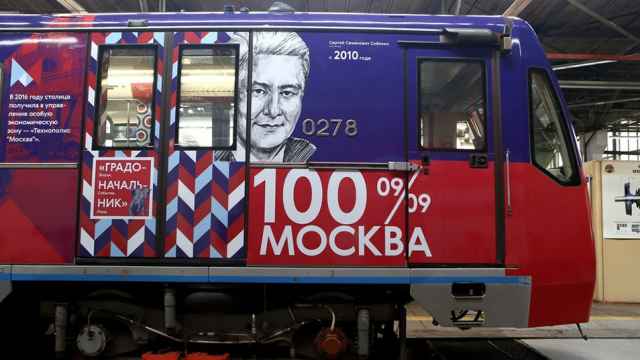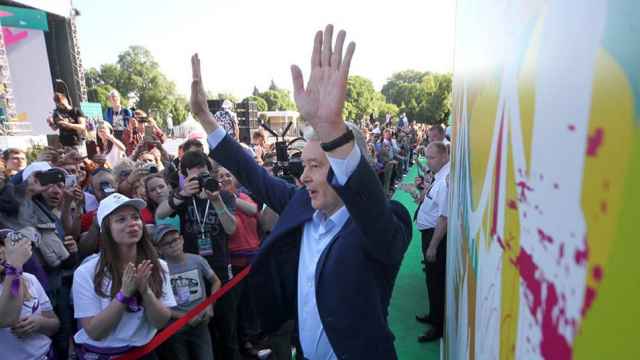Moscow Mayor Sergei Sobyanin is expected to win re-election by an overwhelming margin in this weekend’s mayoral elections following the elimination of virtually all other opposition and independent candidates.
Sobyanin has led Russia’s capital, a city of 12 million people, through waves of mass protests, the Covid-19 pandemic and, today, regular drone attacks amid the protracted war in Ukraine.
The 65-year-old technocrat and close ally of President Vladimir Putin has overseen the city’s renovation and beautification as the Kremlin has gradually dismantled the opposition.
“Moscow has always been a city with high protest activity. But this requires triggers and leaders. [Today] there are none — people are completely disoriented and depressed. Regime opponents have been demobilized,” Oleg Ignatov, a senior analyst at International Crisis Group, told The Moscow Times.
Sobyanin, who was first appointed mayor in 2010 without an election, was nominated to run in the mayoral race by the ruling United Russia party and leads with a 77.5% support rating, state-run pollster VTsIOM said in early September. According to an August survey by the Russian Field polling agency, some 66% of eligible voters surveyed support Sobyanin’s bid.
The Russian capital is historically one of the country’s most protest-inclined regions, and elections at any level — municipal, city and national — have traditionally caused headaches for the Kremlin and the Mayor's Office.
In the winter of 2011-12, the first mass protests during Putin’s rule took place on central Moscow's Bolotnaya Square, with some 80,000 demonstrators taking to the streets against fraud in the presidential election and demanding a re-run.
Those protests prompted the Kremlin to gradually escalate its clampdown on the opposition and independent voices over the following decade.
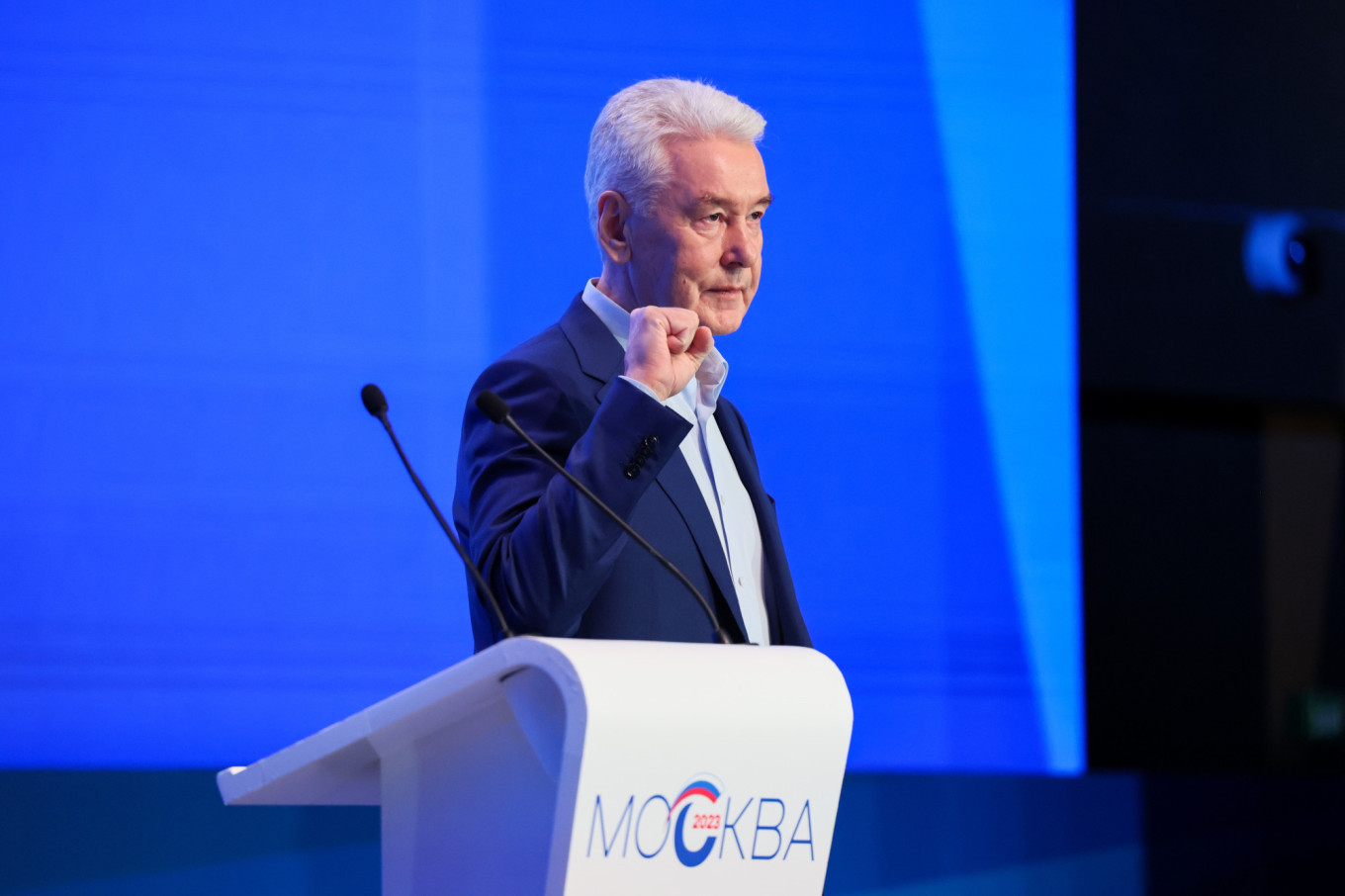
Opposition politicians who had gained significant visibility, influence and support in Moscow — like Alexei Navalny, municipal deputies Ilya Yashin and Alexei Gorinov and others — have been jailed in recent years.
Hundreds of other politicians, activists and independent journalists have been forced into exile abroad to avoid persecution, as the invasion of Ukraine led to a sweeping crackdown on dissent.
With the opposition all but decimated, the Kremlin and Moscow City Hall have been able to quietly register token election rivals for Sobyanin.
The candidates running against him include four politicians who stand little chance of winning. Vladislav Davankov, a candidate from the pseudo-liberal, Kremlin-sanctioned New People party, even publicly admitted on the eve of the vote that he had no intention of winning.
Another of Sobyanin's opponents, Dmitry Gusev from the A Just Russia party — who helped Putin secure a landslide victory in the 2018 presidential election — is known for his comments that Muscovites’ greatest desire is for life to be “like it was in the U.S.S.R.”
There is also Leonid Zyuganov, the grandson of veteran Communist Party (KPRF) leader Gennady Zyuganov, as well as State Duma deputy Boris Chernyshov, a representative of the nationalist Liberal Democratic Party who made a name for himself by taking part in a televised debate alone after no other candidates showed up.
Sobyanin, meanwhile, did not even bother with running a re-election campaign.
Instead, he appears to have pinned his hopes on the idea that vast infrastructure projects and popular social support programs will be enough to curry favor with the city’s residents, as billions of rubles have been poured into Moscow’s development in recent years.
"He goes here and there endlessly, opening roads, metro stations, hospitals. He has a really high rating," a source close to Moscow City Hall told The Moscow Times on condition of anonymity.
Meanwhile, authorities have encouraged voters to cast their ballots through an online portal during the three-day voting period that ends Sunday.
Putin on Saturday said he voted in the mayoral election online, calling the electronic platform “convenient and popular.”
But critics say online voting, with its lack of transparency, opens the door to mass electoral manipulation.
"Despite the elimination of the opposition, Sobyanin's team — under the Kremlin’s guidance — has committed to expanding the use of online voting," a source close to the Kremlin told The Moscow Times.
To incentivize Muscovites to vote electronically, the authorities are holding a raffle where residents can win gift certificates ranging in value from $10-50. Similar lotteries in previous years had given away apartments and cars.
At the same time, authorities have tasked state-run organizations with requiring their staff to register and participate in online voting, as confirmed by both a communal services employee and a metro worker who spoke to The Moscow Times.
Hospitals and clinics received similar orders, the independent news outlet Vyorstka reported.
With the Moscow mayoral election taking place just months ahead of the 2024 presidential election, the outcome of this weekend’s vote will be closely watched.
"Sobyanin will have no problem winning. But these elections are also a test run for the Kremlin [to understand] how everything works before the main election — the presidential election," the source close to the Kremlin told The Moscow Times.
Next March, Putin is expected to seek re-election for a fifth overall term in office, with reports that regional authorities have been tasked with ensuring at least 80% of the votes for the Russian leader.
"The status of Moscow [as a place] where the regime may encounter problems — where it may get fewer votes than in other parts of the country — is gradually waning,” expert Ignatov said. “After Sobyanin's election, it will be possible for Putin to get 80% in Moscow.”
A Message from The Moscow Times:
Dear readers,
We are facing unprecedented challenges. Russia's Prosecutor General's Office has designated The Moscow Times as an "undesirable" organization, criminalizing our work and putting our staff at risk of prosecution. This follows our earlier unjust labeling as a "foreign agent."
These actions are direct attempts to silence independent journalism in Russia. The authorities claim our work "discredits the decisions of the Russian leadership." We see things differently: we strive to provide accurate, unbiased reporting on Russia.
We, the journalists of The Moscow Times, refuse to be silenced. But to continue our work, we need your help.
Your support, no matter how small, makes a world of difference. If you can, please support us monthly starting from just $2. It's quick to set up, and every contribution makes a significant impact.
By supporting The Moscow Times, you're defending open, independent journalism in the face of repression. Thank you for standing with us.
Remind me later.



